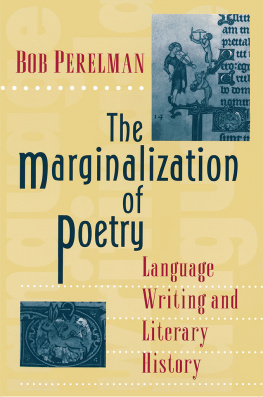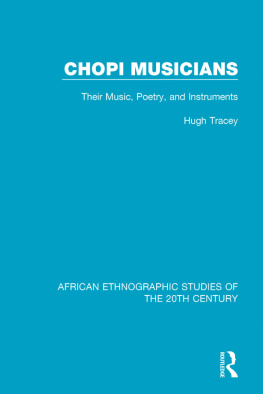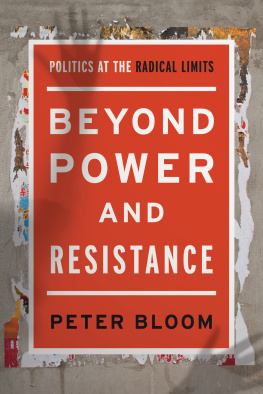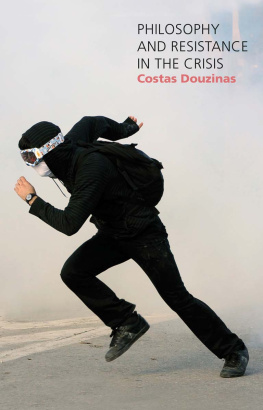ISRAELS POETRY OF RESISTANCE Africana Perspectives on Early Hebrew Verse Copyright 2013 Fortress Press. All rights reserved. Except for brief quotations in critical articles or reviews, no part of this book may be reproduced in any manner without prior written permission from the publisher. Visit http://www.augsburgfortress.org/copyrights/ or write to Permissions, Augsburg Fortress, Box 1209, Minneapolis, MN 55440. Cover image: The Baptism, Romare Bearden Romare Bearden Foundation/Licensed by VAGA, New York, NY Cover design: Laurie Ingram Library of Congress Cataloging-in-Publication Data is available Print ISBN: 978-0-8006-6334-6 eBook ISBN: 978-1-4514-2628-1 The paper used in this publication meets the minimum requirements of American National Standard for Information Sciences Permanence of Paper for Printed Library Materials, ANSI Z329.48-1984. Manufactured in the U.S.A.
This book was produced using PressBooks.com.
When I first conceived of the project leading to this book, back in 1996, I hoped simply to extend the research begun in the 1950s by Frank Moore Cross Jr. and David Noel Freedman
The earliest subgroup of biblical poems (Exodus 15; Psalm 29; Judges 5; Genesis 49; Numbers 2324; Deuteronomy 32 and 33; 1 Samuel 2; 2 Samuel 1, 22 (= Psalm 18), and 23; and Psalms 68, 72, and 78) has much to say to the Africana community living in the North American Diaspora. Approaching them as a subcanon, with its own distinctive ideological parameters and theological foci, Black pastors, preachers, and Bible readers will discover in these poems prisms that refract the history and cultural norms of early Israel for a twenty-first-century audience. As a distinct collection within the Hebrew Bible / Old Testament / First Testament, early Hebrew poetry preserves the inspired insights of Israels most ancient griots. It represents the earliest recorded musings of our biblical forebears on God, the universe, community, nature, humanity, and lifes ultimate meaning. Moreover, it offers a selective view of an Israelite ethos, born in crisis, that is dynamic, creative, pluriform, polyphonic, and transgressive. This is a community whose early challenges were not unlike those encountered by many Africana peoples today, particularly those dealing with the effects of social displacement and marginalization.
These poems are best seen as a literary assemblage that mirrors the trauma of the community whose artists produced it. Their collection, curating, and preservation within early Israel was, I believe, an act of prayerful resistance: a communal no to the forces of despair and a collective yes to the power of the Spirit. Consequently, they deal with the realities of a culturally diverse community experiencing transition and loss while struggling to define itself. No aspect of daily existence, no human emotion, is left unexplored. Some of the poems are raw. A few are esoteric. All are real.
The poems are at once speculative and concrete in dealing with issues cosmic and pragmatic. That reflection on the formative years of the tribal confederacy and the early monarchy is cast in verse is indicative of the premium placed on the power of expressive culture in ancient Israelmusic, dance, and artful speech in particular. Moreover, that these works of verbal artistry have been strategically placed in each of the Hebrew Bibles canonical subdivisionsTorah, Prophets, and Writingsis significant. It suggests that Israels most ancient poetic reminiscences were held to be not only cultural treasures but also eschatologizing texts capable of bringing people into communion with one another and their deity. Moreover, it implies that Israels early poets were esteemed, by their contemporaries and later generations, as literary, social, and numinous makers.
The adaptive lifeways and ideas reflected in their works resonate with those in the Africana community who find themselves perennially outside of the social or political mainstream. Therefore, as theological, pastoral, and political interlocutors, early Hebrew poems have much to commend with regard to the creation of Africana spiritualities of resistance today. Reading them from a perspective that is decidedly African American allows them to speak in an idiom understandable at once to those at home within the North American Diaspora and to others for whom separation from a homelandwhether actual, imagined, or longed foris a distinctive marker of identity.
Unfortunately, scholarly consensus about the origins of Israel has yet to emerge. What John McDermott concluded in his brief popular survey some time ago holds true today, namely, that the evidence we have is open to various interpretations and that the mystery of Israels origin remains unsolved. of both early Hebrew poems and Africana life in engaging them.
What follows, therefore, is not an exhaustive rehash of earlier scholarship on this subject. It is, instead, a compendium of autobiographical reflections on Scripture in the vein of those found in Jeffrey Staleys pioneering work; what Norman Denzin might classify as a Reflexive, Messy Text; an exercise in both biblical scholarship and constructive theology built on the paradigm of conjure proposed more than a decade ago by Theophus Smithone that, to borrow his words, allows its engagement with biblical hermeneutics to be displayed to clear view; an early twenty-first-century response to Ishmael Reeds Neo-HooDoo Manifesto; an excavation of ancient Hebrew verse that, in the spirit of bell hookss Bone Black, is presented as truth and mythas poetic witness; a new kind of critical edition of these poems that implicitly says yes to Vincent Wimbushs call to be a runaway member of the guild of biblicistsa state, in his words, of marronage, running away with an attitude and a plan, a taking flightin body, but even more importantly in terms of consciousness.
I thank the late David Noel Freedman and Frank Moore Cross Jr.mentors bothfor their encouragement and helpful suggestions throughout the many years during which the very earliest stage of the work leading to the production of this monograph was unfolding. I also thank my father, the late Deacon Hugh R. Page Sr., and my mother, Deacon Elaine B. Page, for believing and investing in my dreams; and my wife, Dr. Jacquetta E. Page, who isand will forever bemy muse, fellow traveler, and soul mate.
Hugh Rowland Page Jr.
- Frank Moore Cross and David Noel Freedman, Early Hebrew Orthography, ed. J. B. Pritchard. American Oriental Series 36 (New Haven, CT: American Oriental Society, 1952).
- Frank Moore Cross and David Noel Freedman, Studies in Ancient Yahwistic Poetry, 2nd ed., Biblical Resource Series (Grand Rapids, MI: Eerdmans, 1997).
- Hugh R. Page Jr. et al., eds., The Africana Bible: Reading Israels Scriptures from Africa and the African Diaspora (Minneapolis: Fortress Press, 2010); Hugh R. Page Jr., Early Hebrew Poetry and Ancient Pre-Biblical Sources, in Page et al., Africana Bible.
- For a variety of reasonslinguistic, thematic, prosodic, and otherI am of the opinion that the poems are in fact archaic (legitimately old) rather than archaizing (displaying literary features that lead one to believe that they are old). I concur with Freedmans assessment almost two decades ago that such a conclusion could be based not on proof beyond a reasonable doubt but on the preponderance of the evidence and a rational reconstruction of the contents of the poems and their meaning. Cross and Freedman,






